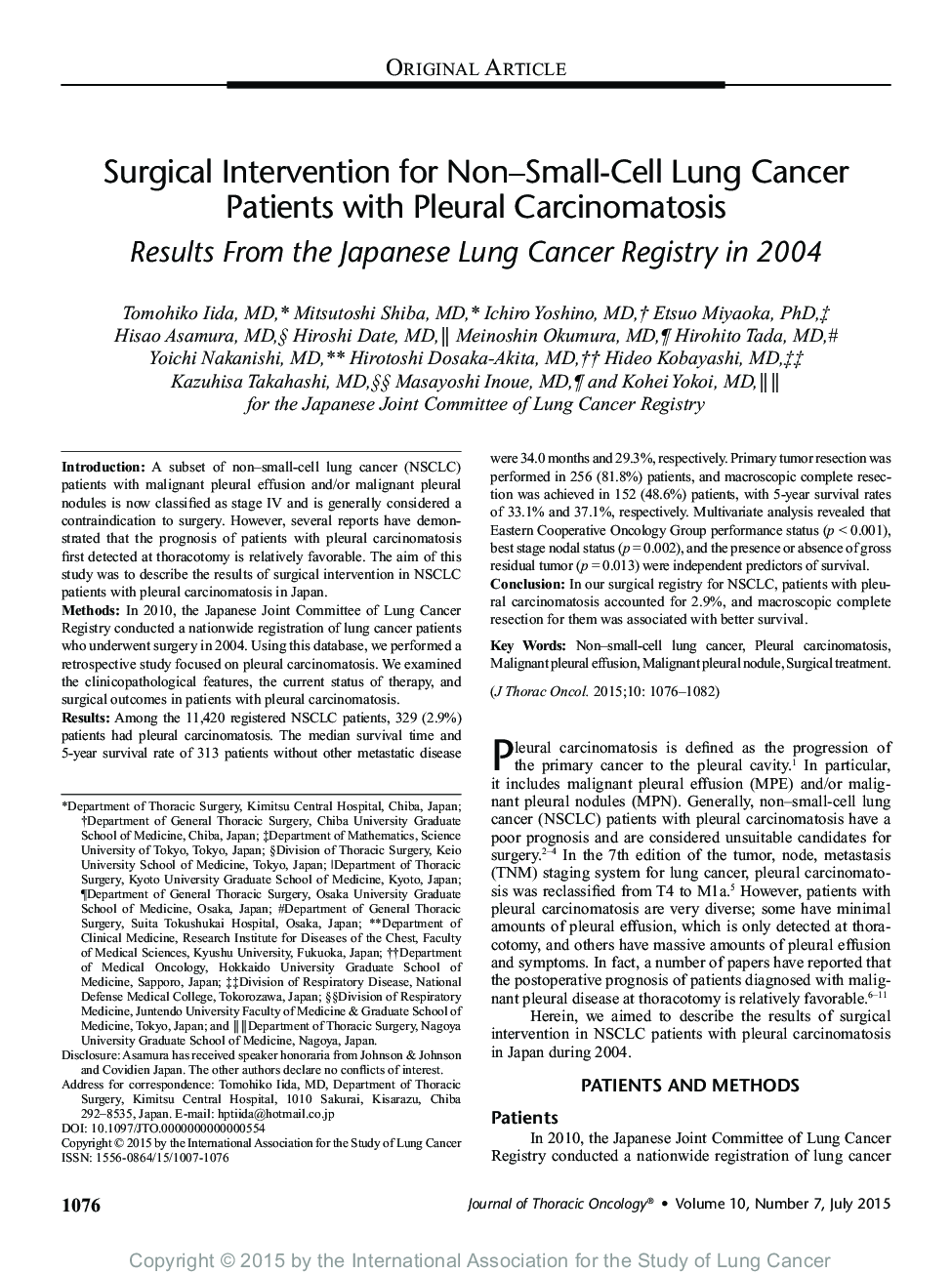| Article ID | Journal | Published Year | Pages | File Type |
|---|---|---|---|---|
| 6192843 | Journal of Thoracic Oncology | 2015 | 7 Pages |
Introduction:A subset of non-small-cell lung cancer (NSCLC) patients with malignant pleural effusion and/or malignant pleural nodules is now classified as stage IV and is generally considered a contraindication to surgery. However, several reports have demonstrated that the prognosis of patients with pleural carcinomatosis first detected at thoracotomy is relatively favorable. The aim of this study was to describe the results of surgical intervention in NSCLC patients with pleural carcinomatosis in Japan.Methods:In 2010, the Japanese Joint Committee of Lung Cancer Registry conducted a nationwide registration of lung cancer patients who underwent surgery in 2004. Using this database, we performed a retrospective study focused on pleural carcinomatosis. We examined the clinicopathological features, the current status of therapy, and surgical outcomes in patients with pleural carcinomatosis.Results:Among the 11,420 registered NSCLC patients, 329 (2.9%) patients had pleural carcinomatosis. The median survival time and 5-year survival rate of 313 patients without other metastatic disease were 34.0 months and 29.3%, respectively. Primary tumor resection was performed in 256 (81.8%) patients, and macroscopic complete resection was achieved in 152 (48.6%) patients, with 5-year survival rates of 33.1% and 37.1%, respectively. Multivariate analysis revealed that Eastern Cooperative Oncology Group performance status (p < 0.001), best stage nodal status (p = 0.002), and the presence or absence of gross residual tumor (p = 0.013) were independent predictors of survival.Conclusion:In our surgical registry for NSCLC, patients with pleural carcinomatosis accounted for 2.9%, and macroscopic complete resection for them was associated with better survival.
